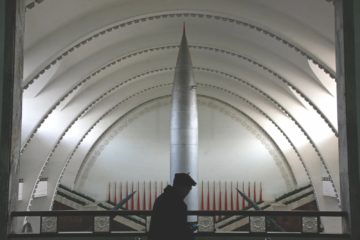Andrew F. Krepinevich, Jr. in Foreign Affairs:
 In developing a nuclear arsenal that will soon rival those of Russia and the United States, China is not merely departing from its decades-old status as a minor nuclear state; it is also upending the bipolar nuclear power system. For the 73 years since the Soviet Union’s first nuclear test, that bipolar system, for all its flaws and moments of terror, has averted nuclear war. Now, by closing in on parity with the two existing great nuclear powers, China is heralding a paradigm shift to something much less stable: a tripolar nuclear system. In that world, there will be both a greater risk of a nuclear arms race and heightened incentives for states to resort to nuclear weapons in a crisis. With three competing great nuclear powers, many of the features that enhanced stability in the bipolar system will be rendered either moot or far less reliable.
In developing a nuclear arsenal that will soon rival those of Russia and the United States, China is not merely departing from its decades-old status as a minor nuclear state; it is also upending the bipolar nuclear power system. For the 73 years since the Soviet Union’s first nuclear test, that bipolar system, for all its flaws and moments of terror, has averted nuclear war. Now, by closing in on parity with the two existing great nuclear powers, China is heralding a paradigm shift to something much less stable: a tripolar nuclear system. In that world, there will be both a greater risk of a nuclear arms race and heightened incentives for states to resort to nuclear weapons in a crisis. With three competing great nuclear powers, many of the features that enhanced stability in the bipolar system will be rendered either moot or far less reliable.
There is nothing the United States can do to prevent China from joining it and Russia as the world’s top nuclear powers, but there are things that U.S. strategists and defense planners can do to mitigate the consequences.
More here.
